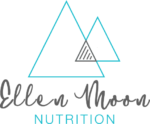Protein is a vital structural and working substance in all cells. Proteins contain the atoms carbon, hydrogen, oxygen and nitrogen. Proteins are made up of about 20 amino acids; both essential and non-essential amino acids.
Essential amino acids cannot be made by the body. As a result, they must come from food.
Nonessential amino acids can be made by humans and so is not essential to the human diet.
Protein is required for the growth and maintenance of tissues.
Protein in the body plays structural (keratin, collagen) and functional (enzymes, transport proteins, hormones) roles.
Protein plays a vital role in regulating the pH of the body.
Some proteins are hormones, which are chemical messengers that aid communication between your cells, tissues and organs.
Enzymes are proteins that allow for many different functions within the body including; digestion, energy production, blood clotting and muscle contraction.
Proteins form antibodies to protect your body from disease-causing bacteria and viruses. Your body develops immunity against the diseases to which it is exposed, as a result of this.
Some proteins in the body transport nutrients throughout your entire body, while others store them.
Protein can serve as a valuable energy source but only in situations of fasting, exhaustive exercise or inadequate calorie intake. However, the last thing your body wants to use for energy is protein since this valuable nutrient is widely used throughout your body.
Protein intake can be linked with increased satiety.
Different sources:
– lean meat, poultry and fish
– eggs
– dairy products like milk, yoghurt and cheese
– seeds and nuts
– beans and legumes (such as lentils and chickpeas)
– soy products like tofu
some grain and cereal-based products are also sources of protein, but are generally not as high in protein as meat and meat alternative products.

